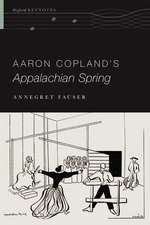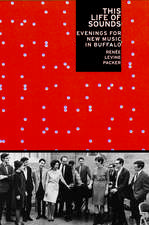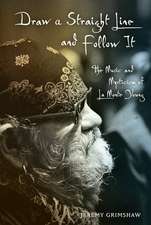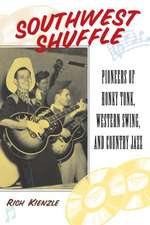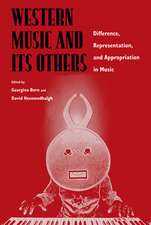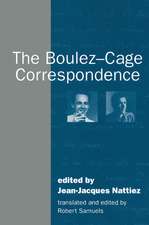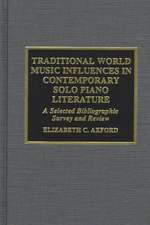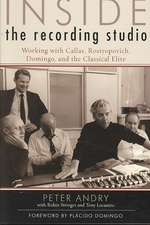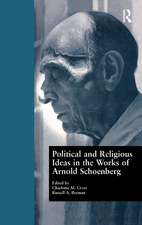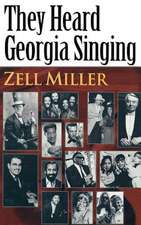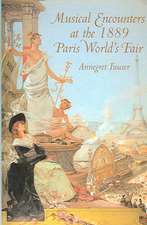Sounds of War: Music in the United States during World War II
Autor Annegret Fauseren Limba Engleză Hardback – 30 mai 2013
Preț: 357.67 lei
Preț vechi: 403.29 lei
-11% Nou
Puncte Express: 537
Preț estimativ în valută:
68.46€ • 74.39$ • 57.55£
68.46€ • 74.39$ • 57.55£
Carte tipărită la comandă
Livrare economică 09-15 aprilie
Preluare comenzi: 021 569.72.76
Specificații
ISBN-13: 9780199948031
ISBN-10: 0199948038
Pagini: 386
Ilustrații: 26 illustrations, 6 tables
Dimensiuni: 242 x 163 x 30 mm
Greutate: 0.77 kg
Editura: Oxford University Press
Colecția OUP USA
Locul publicării:New York, United States
ISBN-10: 0199948038
Pagini: 386
Ilustrații: 26 illustrations, 6 tables
Dimensiuni: 242 x 163 x 30 mm
Greutate: 0.77 kg
Editura: Oxford University Press
Colecția OUP USA
Locul publicării:New York, United States
Recenzii
Annegret Fauser has devoted the recent phases of her distinguished career to exploring how circumstances of cultural contact affect the making of music ... Sounds of War: Music in the United States during World War II, extends this broadly contextual approach into the American orbit. It is a major contribution to the field.
Sounds of War is a formidable book. It presents itself already as a benchmark not only for research about music during World War II but also for work on all music during all wars â Fauserâs book presents a point of reference as much for questions of methodology as for its empirical contributions, and not only for the history of the United States.
Fauser's book is eminently readable and grounded in an astounding amount of archival research. It is recommended to cultural historians and musicians alike.
effort.
Through author Annegret Fauser's in-depth, engaging, and encompassing discussion in context of this unique period in American history, Sounds of War brings to life the people and institutions that created, performed, and listened to this music.
Clear and well-researched, [this book draws] on a great many archival sources... Recommended.
the portrait she [the author] assembles is impressive.
Fascinating ... Fauser looks beyond the commonplace memories of swing and Sinatra, touching on the mainstream embrace of classical music by way of addressing her main theme: the employment of 'serious' composers and musicians in the war effort.
Sounds of War is a formidable book. It presents itself already as a benchmark not only for research about music during World War II but also for work on all music during all wars â Fauserâs book presents a point of reference as much for questions of methodology as for its empirical contributions, and not only for the history of the United States.
Fauser's book is eminently readable and grounded in an astounding amount of archival research. It is recommended to cultural historians and musicians alike.
effort.
Through author Annegret Fauser's in-depth, engaging, and encompassing discussion in context of this unique period in American history, Sounds of War brings to life the people and institutions that created, performed, and listened to this music.
Clear and well-researched, [this book draws] on a great many archival sources... Recommended.
the portrait she [the author] assembles is impressive.
Fascinating ... Fauser looks beyond the commonplace memories of swing and Sinatra, touching on the mainstream embrace of classical music by way of addressing her main theme: the employment of 'serious' composers and musicians in the war effort.
Notă biografică
Annegret Fauser is Professor of Music and Adjunct Professor of Women's Studies at the University of North Carolina - Chapel Hill. She is author of Musical Encounters at the 1889 Paris World's Fair (University of Rochester Press, 2005), and co-editor of Music, Theater and Cultural Transfer: Paris 1813-1914 (University of Chicago Press, 2009)

